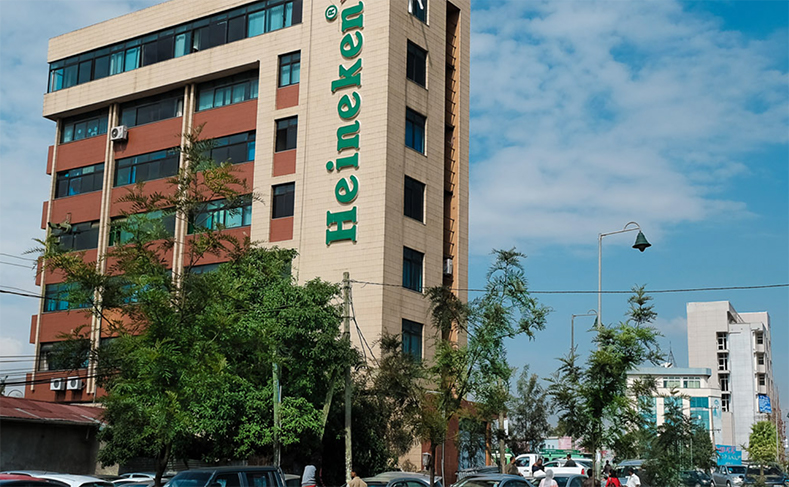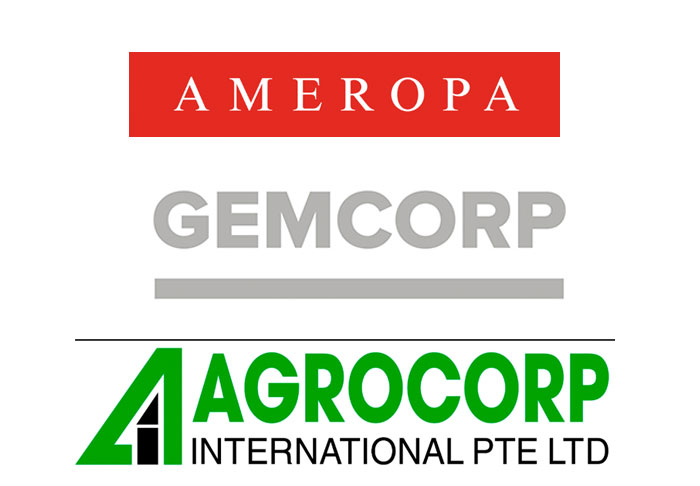
Covid-19 | Mar 31,2020
Jan 5 , 2020
By TEMESGEN MULUGETA ( FORTUNE STAFF WRITER )
Zhaoxin Wang, a Chinese-owned plastics factory, completed an expansion project to produce plastic pipes that are used for fluid and gas transfer and often used to replace ageing concrete or steel main pipelines.
Located in the Eastern Industrial Zone in Dukem, some 40Km west of the capital, the expansion took two and a half months to complete and consumed 14 million Br of investment.
The final installation of the machinery was done in early December, and the company started production three weeks ago. The company produces different sizes of high-density polyethene pipes, plastic pipes that are mainly used for water supply.
Resting on 3,000sqm of land, the new plant that has a capacity of producing 700Kg of high-density polyethene pipe an hour is currently producing 600Kg of the plastic pipes an hour with machinery imported from China.
Shanghai Jwell Machinery Co. Ltd, one of plastic extrusion machinery manufacturers in China with over 20 years of experience in the field, has produced and installed the machinery.
Governmental institutions, non-governmental organisations and private contractors who are engaged in waterworks are the potential customers of the company, according to Surafel Kassahun, a salesperson at Zhaoxin Wang.
Initially, the plant created job opportunities for 25 people, but after it starts production at full capacity the number will double, according to Surafel.
The existing plant, which was built at a cost of 28 million Br, became operational in April 2019 and produces pipes for low pressure uses. Currently, the company has 180 employees.
Another wing of Zhaoxin Wang, which is located next to the plastic plant at the Eastern Industrial Zone in Dukem has been engaged in chip wood board and laminated chip wood production for the past four years.
The Ethiopian Plastic & Rubber Association welcomes the project by stating that it will substitute for imported plastic pipes.
The government has to play a vital role by incentivising local manufacturers to produce more, according to Tewelde G. Michel, president of the Association, which has 250 companies as members, of which 15 are giant firms.
"The government should ensure that local manufacturers are able to secure forex rather than giving it to importers with the aim of substituting imported products," he added.
A marketing expert applauds the expansion project for the job opportunities it created and for replacing imported products.
To motivate local producers, the government should give them the priority to access forex, according to Hailemariam Kebede (PhD), a lecturer at Addis Abeba University's School of Commerce.
"This will also lessen the burden on forex," Hailemariam said. "The company should also address the high demand for the product."
The first Ethiopian plastic factory was established in 1960 by a group of five entrepreneurs. In 1973 the military government nationalised 55pc of the company, leaving the remaining 45pc to the original owners.
PUBLISHED ON
Jan 05,2020 [ VOL
20 , NO
1028]

Covid-19 | Mar 31,2020

Fortune News | Feb 27,2021

Fortune News | May 04,2019

Radar | Jul 24,2021

Radar | Jun 08,2019

Dec 22 , 2024 . By TIZITA SHEWAFERAW
Charged with transforming colossal state-owned enterprises into modern and competitiv...

Aug 18 , 2024 . By AKSAH ITALO
Although predictable Yonas Zerihun's job in the ride-hailing service is not immune to...

Jul 28 , 2024 . By TIZITA SHEWAFERAW
Unhabitual, perhaps too many, Samuel Gebreyohannes, 38, used to occasionally enjoy a couple of beers at breakfast. However, he recently swit...

Jul 13 , 2024 . By AKSAH ITALO
Investors who rely on tractors, trucks, and field vehicles for commuting, transporting commodities, and f...

Sep 13 , 2025
At its launch in Nairobi two years ago, the Africa Climate Summit was billed as the f...

Sep 6 , 2025
The dawn of a new year is more than a simple turning of the calendar. It is a moment...

Aug 30 , 2025
For Germans, Otto von Bismarck is first remembered as the architect of a unified nati...

Aug 23 , 2025
Banks have a new obsession. After decades chasing deposits and, more recently, digita...